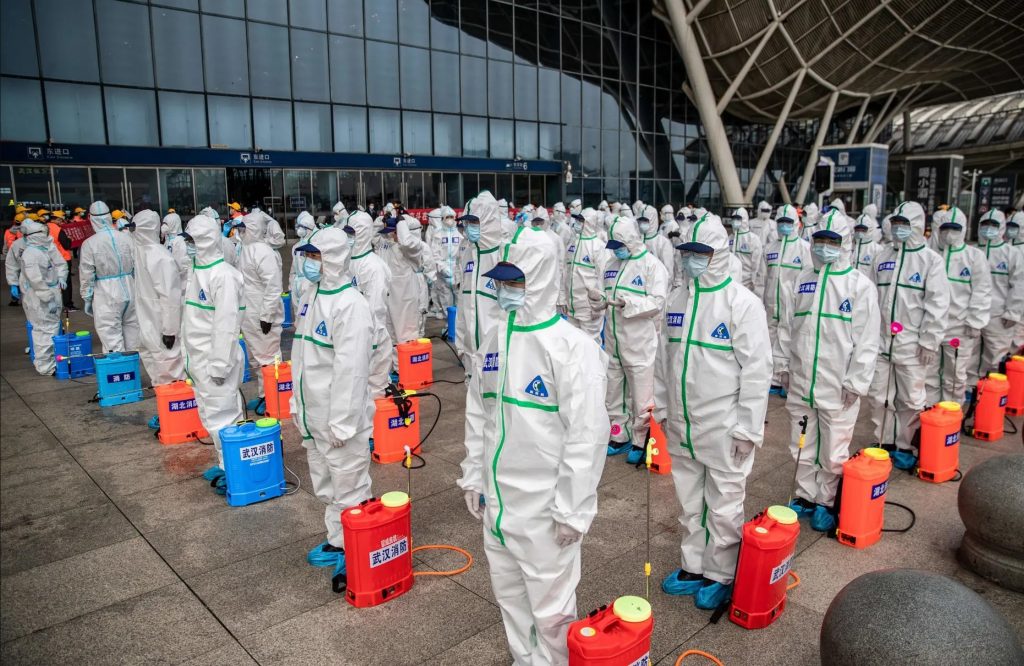
China is bracing for a surge in COVID-19 cases as the Omicron variant, known as XBB, spreads rapidly throughout the country.
According to senior health adviser Zhong Nanshan, infections could reach 40 million per week by the end of this month and peak at around 65 million cases weekly by the end of June. The wave of infections is expected to become the second largest in the country, although it will likely be smaller than the initial wave experienced last year.
Zhong Nanshan, China’s top respiratory disease expert, recently discussed the projected COVID-19 wave at the 2023 Greater Bay Area Science Forum. He revealed that two new vaccines targeting the XBB variant will soon be released in the market. Zhong emphasized the significance of developing effective vaccines against XBB, as it has become the dominant strain in China.
China has already approved two vaccines for the current XBB variant, with more approvals expected in the near future.
The China Center for Disease Control and Prevention (China CDC) reports a significant increase in XBB mutant infections, with its prevalence rising from 0.2 percent in mid-February to 83.6 percent in early May. Experts have expressed concerns about the limited testing and reporting in China, which could result in an underestimation of the true number of cases.
Raj Rajnarayanan, a COVID-variant tracker, explains that the low testing rates could make the wave largely invisible. China now faces the challenge of a substantial population at high risk of severe outcomes due to age, immune status, and comorbidities.
As the XBB variant continues to circulate, there is a possibility of new variants emerging. Rajnarayanan suggests that increased circulation of XBB variants, not only in China but also elsewhere, could lead to the evolution of new strains. However, the World Health Organization’s latest report indicates that XBB variants have thus far been relatively benign for those not at high risk.
The World Health Organization recently recommended in a statement that future COVID-19 vaccines no longer include the original SARS-CoV-2 virus, but instead a different version that closely matches circulating variants.
The WHO’s Technical Advisory Group on COVID-19 Vaccine Composition on May 18 suggested including the XBB.1.5 variant, which is responsible for most new infections worldwide. The updated vaccine should focus on a single XBB variant rather than multiple versions, the WHO advised.
Although not binding, this recommendation serves as a foundation for national vaccine decisions. Some experts have advocated for including multiple virus strains in the next shot, akin to the annual flu shot’s approach. The WHO group highlighted that slight differences exist among existing XBB variants and alternative formulations or platforms that generate strong neutralizing antibody responses against XBB descendent lineages may be considered.
The latest U.S. COVID-19 booster is bivalent, targeting the original SARS-CoV-2 version and two Omicron variants (BA.4 and BA.5). While these shots and previous vaccines remain effective against severe illness, hospitalization, and death, they offer less protection against infection as antibody levels decline over time.
The WHO’s recommendation will be considered by the U.S. Food and Drug Administration (FDA) when its vaccine experts meet in June to discuss the strains to include in the next COVID-19 vaccine. The FDA’s VRBAC committee is moving towards endorsing an annual single shot for most individuals, with additional doses for the elderly and immunocompromised.
The FDA announced in April that previously unvaccinated Americans can now receive a single dose of either the bivalent Moderna or Pfizer mRNA vaccines.
The Covid development comes amidst a U.S. presidential campaign that is picking up steam. Florida Gov. Ron DeSantis announced his bid for the Republican nomination to run in 2024 against former President Donald Trump on Wednesday. The nation’s Covid response will remain a contentious topic, as many states continue to point to the pandemic as a rationale for no excuse mail-in ballots in elections.
“*” indicates required fields
OPINION: This article contains commentary which reflects the author’s opinion.
Source: Becker News Rephrased By: InfoArmed
